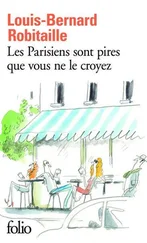When Cecil had arrived there were three boys and seven girls aged four to sixteen, and the majority looked to him to be related by their dishwater blondness and their odor, a piney scent that he shortly came to realize was the smell of the medicine shampoo they were all made to use.
The small children generally kept themselves apart from him because of his size and his ratty face, and the sixteen-year-old was a muttering Indian boy who only left his bunk to look out the window or watch television.
There was a little girl named Tracy who had bald patches on her head. Around her bed were long strings of hair that she pulled out in the night. You could hear her doing it, a barely audible tugging sound like someone yanking a sleeve or the drawstrings on a pullover. The other children seemed to have gotten used to it. Cecil told her to knock it off, but she never did, and he realized that no one was used to it, there was just no remedy for it.
There was another troublesome kid, an obese hysteric named Scotty. He stole a coffee cup from an attendant and after a two- or three-minute standoff, threw it at the attendant’s face. Blood from the man’s nose soaked his shirt, and the kid cried like a toddler when they restrained him. Screamed like they’d stuck him with knife.
Tracy and Scotty were taken away in the same hour, and for a day there, Cecil was high on the hog because he claimed both bunks and no one questioned it. Then several of the girls left and eight new kids arrived and he retreated to a bunk near the window and the rackety radiator. There were kids with scars that fairly glowed like pink wax melted across their naked backs in the showers. Kids who had no respect for personal property or space and who would take your toothbrush or touch you without warning. Kids who bit. Kids who arrived in the middle of the night. Kids who slept on blankets on the dirty runners and left at first light. These children cried at night, they spoke at night, they would not shut up and in the dark you imagined waiting until they were deep in sleep and then slinking over and punching them in the face. That you were ashamed of these feelings did not drive them away. Cecil even imagined what kind of places these kids came from — and these places seemed to him to be in a significantly worse category than his own sad, weird home — and felt the stirrings of pity, but good God they would not cease jabbering. It was like they could not help making themselves hated objects, magnets for cruelty. He wondered did all abuse simply come down to children so irritating that they engendered violence or neglect, the reverse of the way adorable children got toys, got spoiled, and got fat. Seven days and still no Pete.
They had outside time in a pavement play area where the staff tried to engage him in small talk, things about his family, did he have any brothers or sisters, and large talk, was he angry about anything, did he feel like hurting himself. He provided terse answers.
He felt guilty about his sister alone up there with his mother. When he was at his uncle’s, he was actually angry at Katie that she could stay home, that she had all her things, that her life was less broken than his own. But now, he worried. Maybe Ell and Bear would take her too? Or he would go up to Tenmile and murder his mother himself — suffocate her with a pillow or push her down the basement stairs so it looked like an accident — and then Pete would have to let Katie come stay with him and Bear and Ell. They could both help take care of the baby.
One day the matron of the place had him pack his things and wait in the lobby for Pete or someone else, it wasn’t clear. After a while, they were talking about him, he could hear his name, his fate partially announced in snatches as her door opened and closed. They brought him supper in the lobby and the heater made him painfully drowsy. He knocked his head against the wall steadily to stay awake, and the matron came out to see what was the matter. He tried to grin pleasantly. She told him to go watch television. He watched cartoons with the other kids asking him was he leaving or not. He ate in silence.
A new resident had taken his bed. He was to sleep in a cot.
A few days later, Pete arrived. He asked if Cecil had any idea where his mother might be. He’d been by the house a couple times, no one there. Katie hadn’t been in school.
“There you go.”
“There you go?”
“I’m abandoned,” Cecil said. “Just send me to Ell and Bear’s.”
Pete rubbed his mouth in a gesture of feigned contemplation. There was something made up about his mind, you could see it. And Pete wasn’t happy about it.
“What is it?”
“Okay, look,” Pete said. “I went and checked them out. They’re nice enough people, but Bear doesn’t have any work and Ell’s about to have a baby—”
“They said I could live with them!”
“Calm down. I have to think about what’s best for everybody. Even them. If I put you in a bad situation, that’s on me—”
“My uncle’s was a bad situation.”
“No, that was a good situation. Which you messed up. And now they won’t take you back.”
“So, what, I’m gonna live here for the rest of my life?”
Pete looked Cecil in the eye.
“We’re gonna go see your father.”
“Why? I can’t live with him.”
“Obviously. I talked to the judge up in Tenmile, he’s a friend of mine, and he says if I’m gonna put you with somebody like Bear and Ell, I gotta get at least one parent to sign off. So.”
“You go.”
“It’d be good for you to see him.”
“You talked to Bear and Ell?”
“Yes.”
Cecil stood.
“Fine. Let’s go to the prison. Let’s get his signature.”
“There’s something else. Sit down a minute.”
Pete pointed at the seat and Cecil fell into it.
“Ell told me about your mother.”
“What about my mother.”
“She molested you.”
“Fuck that. She did not.”
“She did. Or Ell’s a liar.”
“Ell’s a liar.”
“And you want to go live with someone who lies about you?”
Cecil narrowed his eyes and clutched the edge of the table.
“I ain’t dumb. I see what you’re doing,” he said.
“What am I doing, Cecil?”
“You know.” He looked down at his hands, let go of the table, crossed his legs, and thus composed, said, “I don’t know what you’re talking about.”
Pete slid back his chair and put his hands together and wedged them between his straightened legs in a kind of countermove. They sat like this for a long moment.
“If Ell’s telling me bullshit, how can I trust anything she says when I let you go live with her?”
Cecil closed his eyes just so he could avoid having to look at Pete anymore. When he opened them Pete was still there. Waiting.
“Come on.”
“Oh my God, if you don’t quit asking me this, I’m gonna lose it. For serious.”
Pete and Cecil stood in the lot outside the prison. In the burnt dusk the black mountain horizon glowed like a hunk of charcoal. Two men exited the front of the building and walked purposefully toward the car. Pete got out, went around and opened Cecil’s door, and clapped him on the shoulder. The men walked straight at the open car door. White, short-sleeve shirts, plastic ID badges. Cecil realized this could not be good.
“Where are we?”
“Pine Hills. It’s a juvenile facility. I gotta put you in here for a little bit.”
Cecil looked at the grim brick building, the flags snapping in the wind, the men advancing, with sickening incredulity.
“No fucking way. Just take me somewhere. Let me out on the side of the road.”
“You know I can’t do that.”
“You can sign the papers. You can do it.”
Читать дальше












